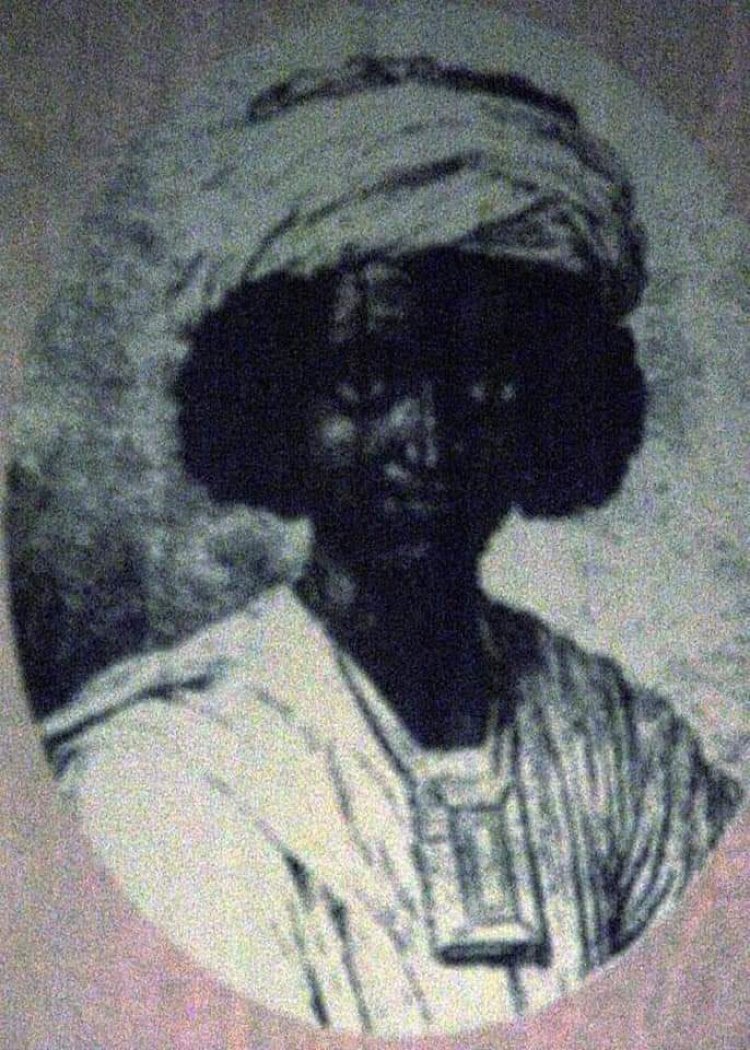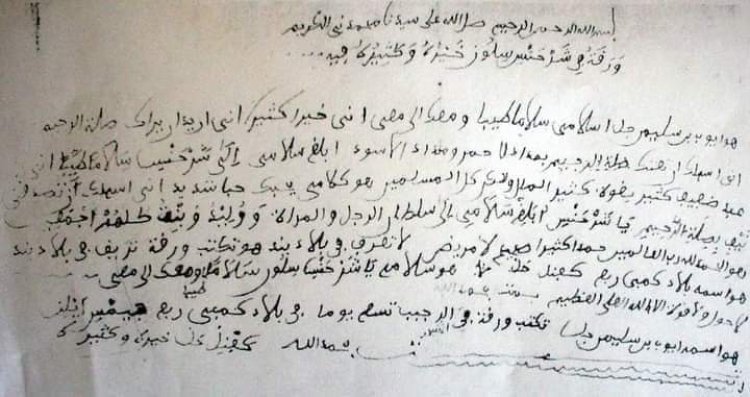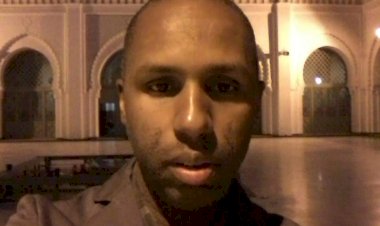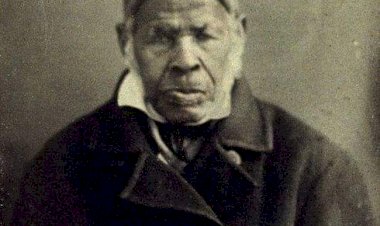AYYUB BEN SULAYMAN BEN IBRAHIM DJALLO:

Ambassador of the Fulani People in Antebellum America
by Shaykh Muhammad Shareef bin Farid
There is no doubt that African Muslims were a part of the integral history of the United States who played a major role in its formation and the formulation of its values. One of the many renown of the enslaved Turudbe’ Fulani Muslims in the United States was Alfa Abu Abdullahi Ayyub ben Sulayman ibn Ibrahim Djallo [see figure 1], who was captured in 1734, and came from the ruling elite of Futa Bundu. His grandfather, Ibrahim, who founded the city of Bundu, he was its Amir (temporal leader) and Alfa (or spiritual leader).1

The father of Ayyub, Sulayman, was an Alfa who taught the children of the leaders the fundamentals of Islamic jurisprudence and the sciences of tasawwuf (spiritual purification). Thus, Alfa Ayyub ben Sulayman was learned based upon the best traditions established in Bundu at the time.2
Bluett reported that he had memorized the Qur’an by age fifteen and had written three of them from memory.3 He was appointed assistant Imam (prayer leader) to his father, a job that included leading the congregational prayers, teaching children the fundamentals of the religion and acting as scribe.4
The whites described Ayyub as being ascetic and having superb character. Thomas Bluett described Ayyub with the same noble traits that those who had mastered the science of tasawwuf were described. He said:
“On all occasions he [Ayyub] discovered a solid judgment, a ready memory, and a clear head…It was very observable with how much temper and impartiality he would reason in conversation upon any question of that kind, while at the same time he would frame such replies, as were calculated at once to support his own opinion, and to oblige or please his opponent. In his reasoning there appeared nothing trifling, nothing hypocritical or over-strained; but, on the contrary, strong sense, joined with an innocent simplicity, a strict regard to truth and a hearty desire to find it.”5
Alfa Ayyub was firm in his understanding of the Unity of Allah and was so dedicated to maintaining his religious practices that it was reported that he even kept up his prayers during the ‘middle passage’ and upheld the dietary laws of Islam.6
As Diouf indicates that, Alfa Ayyub’s erudition and Arabic learning eventually won him his emancipation in return to Futa Bundu.7 The resilience of belief and culture of Alfa Ayyub confirms the persistence of the identity construct of the Turudbe’ and is a fulfillment of the ‘promise’ of the Abrahamic covenant. What is amazing is that in the process of the trans-Atlantic European slave trade, few African anthropological artifacts made it across the long tortuous journey of the Middle Passage.
There were no Asantehene` clothes, Yoruba drums or Benin fetishes that arrived with the enslaved Africans into the western hemisphere. However, from South America to North America, the enslaved African Muslims in general, and the Turudbe’ in particular, engendered hundreds if not thousands of Arabic manuscripts testifying to their cultural resilience and self-determination in spite of slavery.
All anthropologist give credence to the fact that oral traditions, song, music, cooking styles etc are clear unambiguous signs of the survival of a people. However, there is no anthropological evidence which is more compelling than a written document using the colophon and language of that people.
The existence of such documents, especially by ethnicities that have undergone the trauma of population dislocation, cultural aggression and systemic enslavement, are not only the greatest proof of the people’s survival, but they are also the highest symbols of their defiance and self-determination. One need only contemplate the importance that the written US Constitution has in the hearts of every government representative, public official and civil servant to get a grasp of the magnitude of the WRITTEN document. [see figure 2]
The manuscript is an example of the survival of this authentic anthropology in the Arabic writing of Alfa Ayyub. In this letter, Alfa Ayyub stresses the importance of reconnecting with the ties of kinship. He sends his heartfelt greetings to the ruler of his lands, his teachers as well as his close relatives among the Turudbe` Muslims.
It must be understood that what Alfa Ayyub was doing by reconnecting with his kinship, was fulfilling an obligation in the shari`a of Islam. As a learned scholar, one of the key Quranic verses that pressed upon the psychic of Alfa Ayyub was the words of Allah: “Fear Allah about whom you will be questioned and the nearest of kin.”
Further, it has been related by Abdu ibn Humayd on the authority of Akrama who said about the above verse that Ibn Abass said that the Messenger of Allah, may Allah bless him and grant him peace said: “Connect with your relatives, for verily it will give you continuity in this world and it will be good for you in your Hereafter.” Imam Mujahid said about the above verse that it means: “Fear Allah and fear breaking the ties of kinship.”
So clearly, as an enslaved Turudbe` Fulani Muslim completely estranged from his people as a result of the terror and trauma of slavery, the first social act which he was obliged to fulfill was to reconnect with his people. Alfa Ayyub utilized the sacred Arabic language as a link with his motherland, thus establishing an identity construct essential in gaining his freedom from slavery in the United States. The above text reads:
“In the name of Allah the Beneficent the Merciful, may Allah bless our master Muhammad the Prophet of the Generous One. A Letter Regarding Sarrekolli! I give greetings to you in which there is much good. It is from Ayyub ibn Sulayman Djallo. I give you excellent greetings of peace. From what is with you to what is with me, know that I am in a very good state. I desire to see you, as a reconnection of ties of kinship.
I ask you that you pass on my greetings in order to reconnect with the ties of kinship with the red and black. Deliver them all my greetings of peace to the people of Sarrekolli with an excellent greetings of peace from the extremely weak servant who is overcome with much weariness. My address is to every Muslim, to let you know that I love you dearly, and that I ask you that you believe me by reconnecting the ties of kinship.
O people of Sarrekolli, give my greetings of peace to the Sultan of all the men and women in Wulidu and Bundu all of them. I give all praises to Allah the Lord of the worlds with abundant praises of a person who is healthy and not ill. Do not disperse in the lands of Bundu [ the next two sentences are obscure]…
There is no power or might except with Allah the Mighty the Wise…His name is Ayyub ibn Sulayman Djallo and the letter is written in on the 9th of Rajab in the country of [ obscure]. It is complete with the praise to Allah [obscure]”
Alfa Abu Abdullahi Ayyub ben Sulayman is one of the many symbols of the resilience and persistence of the Turudbe’ Fulbe’ traditions, in spite of the hardships of slavery and difficulties of being cut off from the ancient homeland. He fulfilled that Quranic command to the descendants of Ibrahim: “Adhere to My covenant and I will preserve your covenants.”8
Thus, Alfa Ayyub ben Sulayman, by the grace of Allah ta`ala was redeemed after four years in captivity, and returned to his beloved Futa Bundu as the ancient scriptures foretold: “with great substance.”9
Allah ta`ala made a covenant with Abraham that He would protect his descendents and honor them. This mark of distinction was demonstrated through Alfa Ayyub’s adherence to the rope of Islam in spite of the sojourn of slavery.
Allah ta`ala says: “Struggle in Allah with the truthfulness of struggle for He is the One who chose you. And He has not made the way of life difficult for you. It is the religion of your father Ibrahim who named you Muslim from before and in this time so that the Messenger shall be a witness against you and you shall be a witness against mankind. Therefore establish the prayer, give the poor due and hold firmly to Allah. He is your Master, the Best of Masters and the Best of Helpers.”10
There is no doubt that the great Wali of Allah ta`ala, Alfa Abu Abdullahi Ayyub ben Sulayman ibn Ibrahim Djallo, one of the lost but found escendents of Abraham, will be an everlasting witness against the many crimes committed by the Anglo-American against the People and Servants of Allah.
____________________
1. Allan D. Austin, African Muslims in Antebellum America: A Sourcebook, (New York: Garland Publishing, 1984), pp. 7-8.
2. Philip D. Curtin, “Ayuba Suleiman Diallo of Bondu”, Africa Remembered, edit. P. D. Curtin, (London: University of Wisconsin Press, 1967), p. 52.
3. Ibid. p. 52.
4. Ibid. p. 38.
5. Ibid. p. 52.
6. Ibid. p. 44.
7. Sylviane Diouf, Servants of Allah: African Muslims Enslaved in the Americas, 1998, New York, New York University Press, p. 138.
8. Quran: 2: 40.
9. Allan Austin, African Muslims in Antebellum America: Transatlantic Stories and Spiritual Struggles, (New York, Routledge), 1997, p. 93. To distinguish between this text and Austin’s earlier more extensive reference work I will designate it ‘Allah Austin II’.
10. Quran: 22:78.
SOURCES:
The Lost & Found Children of Abraham in Africa & the American Diaspora:
https://www.academia.edu/8092379/The_Lost_and_Found_Children_of_Abraham_In_Africa_and_the_American_Diaspora
https://siiasi.org/digital-archive/shaykh-muhammad-shareef/lost-found-children-of-ibrahim/


















































